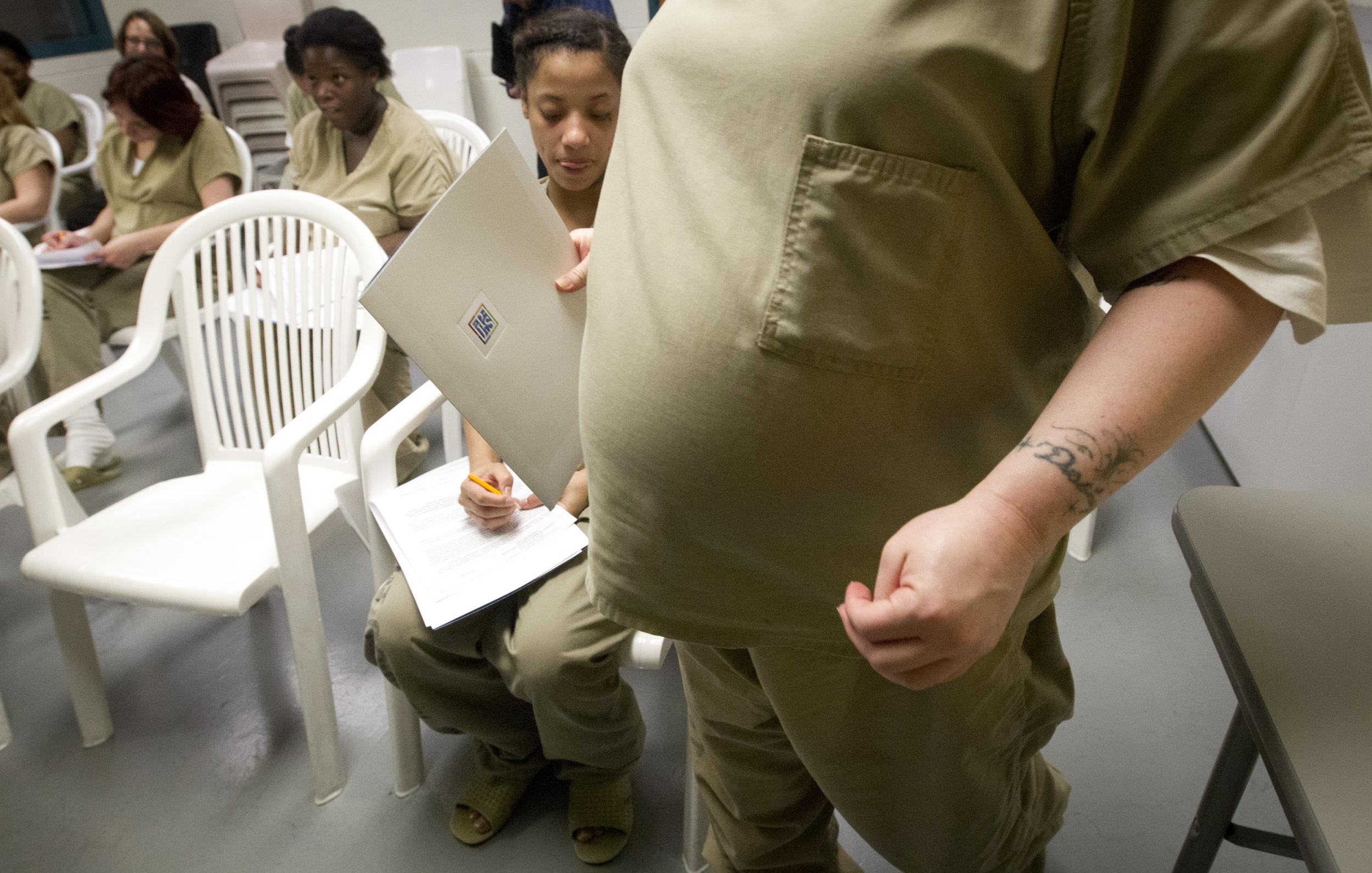New US law bans use of shackles on pregnant federal prisoners
The Federal Bureau of Prisons ceased their use of restraints on pregnant people in 2008, but the First Step Act turns that policy to law

Your support helps us to tell the story
From reproductive rights to climate change to Big Tech, The Independent is on the ground when the story is developing. Whether it's investigating the financials of Elon Musk's pro-Trump PAC or producing our latest documentary, 'The A Word', which shines a light on the American women fighting for reproductive rights, we know how important it is to parse out the facts from the messaging.
At such a critical moment in US history, we need reporters on the ground. Your donation allows us to keep sending journalists to speak to both sides of the story.
The Independent is trusted by Americans across the entire political spectrum. And unlike many other quality news outlets, we choose not to lock Americans out of our reporting and analysis with paywalls. We believe quality journalism should be available to everyone, paid for by those who can afford it.
Your support makes all the difference.A new bipartisan criminal justice reform bill called the First Step Act has been signed into law by Donald Trump, banning the restraint of pregnant inmates during pregnancy, labour, and postpartum recovery in federal prisons.
With exceptions for the safety of the inmate, those around them, and if the inmate is a flight risk, the new law aims to eliminate the risks that come to both the pregnant person and the foetus from restraint by disallowing their use. It was documented in 2011 that restraints during pregnancy, labour, and delivery have negative impacts on foetal care and delivery.
The new law has been criticised for not creating major systematic change, as the Federal Bureau of Prisons ceased its use of restraints on pregnant people in 2008.
However, the First Step Act takes the policy one step further, making it law, and adding greater precautions. The FBP now must track how many pregnant inmates it has and the outcomes of the pregnancies, as outlined by the new law.
The Sentencing Project reports the majority of pregnant people are not in federal prison, but in state and local penitentiaries, meaning many pregnant prisoners will be unaffected by the new law.
The First Step Act was sponsored by 2020 Democratic presidential nomination hopeful Elizabeth Warren.
Ms Warren said to NBC News, “For too long, our criminal justice system has treated incarcerated women as an afterthought.”
Join our commenting forum
Join thought-provoking conversations, follow other Independent readers and see their replies
Comments